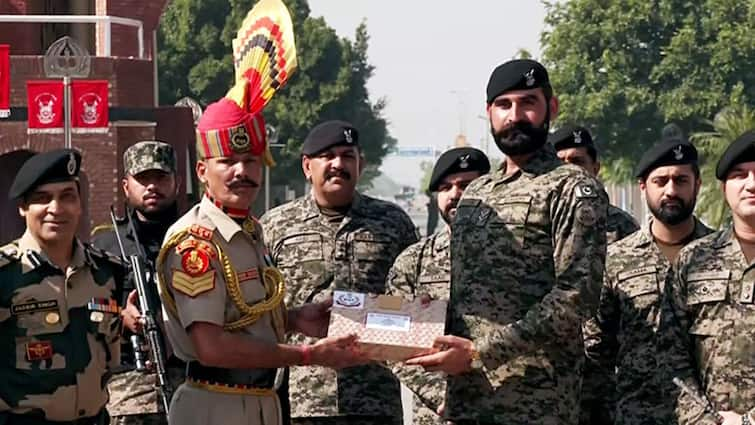India has once again refrained from exchanging sweets with Pakistan Rangers, this time on Diwali. Following directives from the Union Home Ministry, the Border Security Force (BSF) did not participate in the long-standing tradition of sharing sweets at border posts across Rajasthan, including Sriganganagar, Bikaner, Jaisalmer, and Barmer. For decades, Indian and Pakistani troops have observed mutual greetings and sweet exchanges during festivals and national events such as Independence Day, Republic Day, Holi, Diwali, and Eid. However, the ongoing threat of cross-border terrorism has disrupted these goodwill gestures.
This suspension of ritual exchanges first began on 15 August, following the Pahalgam terror attack on April 22, which claimed 26 lives. The government has cited terrorism originating from Pakistan as the reason for halting these symbolic gestures of camaraderie. A senior security official emphasised that the message to Pakistan is unequivocal: “As long as cross-border terrorism continues, such gestures will remain suspended.”
This Diwali, the usual festive cheer at the Rajasthan frontier was notably absent. Border posts that normally witness exchanges of sweets and greetings remained unusually quiet, with heightened vigilance. The measure underscores India’s firm stance that peace gestures cannot coexist with acts of terrorism, sending a clear signal across the border that goodwill will remain on hold until security concerns are addressed.
The suspension of these traditional exchanges is part of a broader trend reflecting rising political tensions between India and Pakistan. Earlier, on 15 September, this standoff even influenced the Asia Cup 2025 in Dubai, when the Indian cricket team declined the customary post-match handshake with their Pakistani opponents as a mark of protest. These developments highlight how security concerns and political disagreements continue to impact longstanding cross-border traditions.


